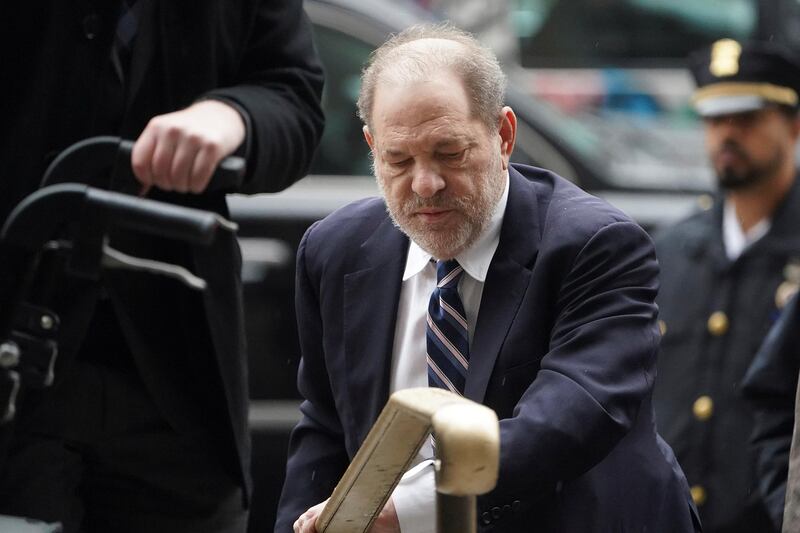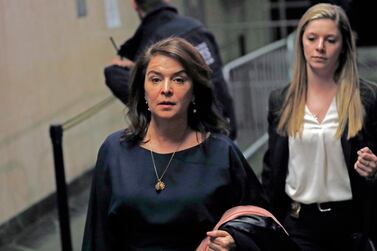Harvey Weinstein’s lawyer told jurors on Thursday that prosecutors in the rape case against him were acting like moviemakers, creating a world where “women are not responsible” for how they interact with men.
Mr Weinstein is innocent, lawyer Donna Rotunno said, appealing to jurors to ignore “outside forces” and use their “New York City common sense” in considering a case regarded as a milestone for the #MeToo movement.
Ms Rotunno, criticised by #MeToo supporters for backing the disgraced movie mogul, said prosecutors had to come up with a “sinister tale” about the disgraced producer, 67, because they did not have the evidence to prove the charges.
“The irony is that they are the producers and they are writing the script,” she said. “In their universe, women are not responsible” for their behaviour when they engage with men.
Ms Rotunno must convince the jury of seven men and five women that there are too many inconsistencies in the testimony of Mr Weinstein’s accusers, without breaking her earlier promise that jurors would not hear any “victim shaming".
“You don’t have to like Mr Weinstein,” she told jurors. “This is not a popularity contest.”
Mr Weinstein is charged with raping a woman in a Manhattan hotel room in 2013 and forcibly performing oral sex on another in 2006.
Other accusers testified as part of a prosecution effort to show he used the same tactics to victimise many women over the years.
Mr Weinstein, who did not testify, has maintained any sexual encounters were consensual.
The jury is due to hear the prosecution closing arguments on Friday before receiving instructions from Judge James Burke next week, then starting deliberations.
In often emotional testimony, Mr Weinstein’s accusers said he lured them to hotels in New York and Los Angeles on the pretense of promoting their acting careers, then sexually assaulted them.
The defence confronted some accusers with warm emails and other communication with Mr Weinstein months or even years after the alleged attacks.
The jury heard about emails in which the victim of the alleged rape later wrote to Mr Weinstein to accept party invitations from him, give him new phone numbers and even express gratitude.
One message read: “I feel so fabulous and beautiful. Thank you for everything.”
Ms Rotunno is also likely to highlight the testimony of a friend and former roommate of the same accuser, who said she never heard her say anything bad about Mr Weinstein.
The witness said the woman once called him her “spiritual soulmate”.
Ms Rotunno delivered her closing argument less than a week after she came under fire on social media for telling The New York Times that she'd never been attacked "because I would never put myself in that position".
In court, prosecutor Joan Illuzzi-Orbon questioned the timing of the interview and rebuked her for calling the prosecution’s witnesses “liars.”
“That was taped a long time ago,” Ms Rotunno interrupted, claiming that she had not talked to anyone in the media since the case began.
She was later contradicted by a Times spokeswoman, who said the interview was recorded on January 28 — five days after opening statements and the start of testimony.







